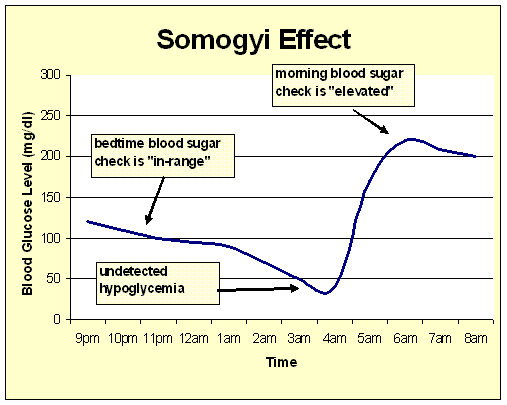You wake up with blood sugar looking like you’ve eaten tons of cookies during the night. How is that possible? Even though this is not a problem for most people, it is for those with diabetes. In fact, high blood sugar in the morning is common for these people.
But, there is a logical explanation behind this increase, as well as certain things you can do to reduce the number of such mornings.
What Causes Blood Glucose Spikes in the Morning?
Your morning blood sugar can be high because of American Diabetes Organization: the Somogyi effect, the dawn phenomenon, and waning insulin.
The Dawn Phenomenon
While you sleep, a number of changes occur in your body which could result in higher blood sugar in the morning. Your body sleeps most soundly between 00:00 and 3:00 AM – the time when you have little need for insulin.
Taking insulin in the evening causes a drastic reduction in blood sugar levels during this period of the night. Next, between 3:00 AM and 8:00 AM, the body begins to prepare the stored glucose for the day, churning it out and releasing hormones that lower insulin sensitivity.
All of this happens while your night insulin dose is gradually wearing off. So, the combination of all of these events that happen while you sleep causes an increase in your blood glucose levels in the “dawn” or morning.
Somogyi Effect
Rebound hyperglycemia or the Somogyi effect is the rarer cause of high morning blood sugar. Even though the processes that happen in your body during the sleep cycle are the same as in the dawn phenomenon, this cause is more a result of improper management of diabetes.
It could happen in two scenarios. In the first one, you didn’t have enough bedtime snacks, or you took too much insulin. Here, your blood glucose levels could become too low in the middle of the night, and then increase due to the hormones released by your body.
The second scenario is when your bedtime insulin dose is not enough, resulting in blood sugar spikes in the morning.
Wanning Insulin
High morning blood glucose could be a result of an evening meal. However, in that case, the cause could be waning long-acting insulin from a bedtime injection, too little mealtime insulin, or insufficient overnight basal pump rate.
How to Determine the Right Cause
You should consult your doctor who will probably tell you to check your blood glucose at night, between 2:00 AM and 3:00 AM, for a few nights in a row.
The reason for your high morning blood sugar levels is probably the Somogyi effect when your blood glucose levels are constantly low during this period of the night.
On the other hand, it’s likely the dawn effect when they are normal or high during this time.
What to Do About It
Here are a few tips to help prevent or at least reduce the mornings with high blood sugar. However, consult your doctor before choosing anything.
- Stay physically active to improve glucose metabolism. You can exercise as well as go for a walk after your dinner to aid digestion.
- Avoid stress, and learn how to manage it. For example, you can do yoga or meditation.
- Eat foods with low glycemic indexes, such as beans, barley, rolled oats, peas, lentils, and legumes.
- Avoid foods with a high glycemic index like instant oatmeal, white rice, and white bread.
- Change the insulin type you use in the evening, as well as the time you take it.
- Have a lighter breakfast.
- Take extra insulin overnight.
- Raise your insulin dose in the morning.

